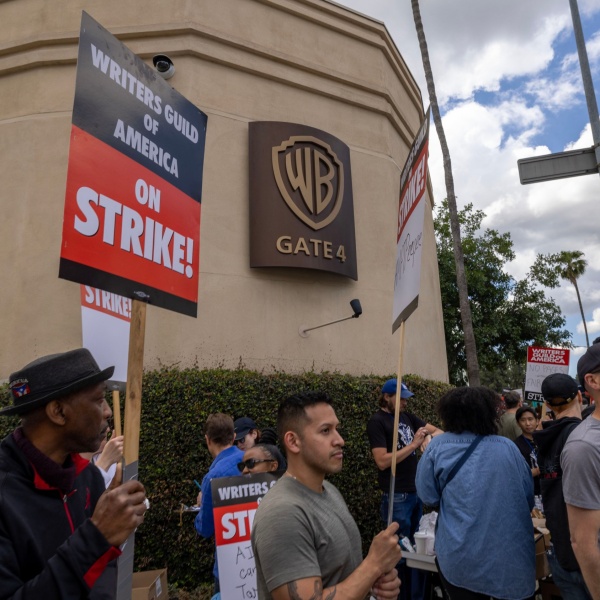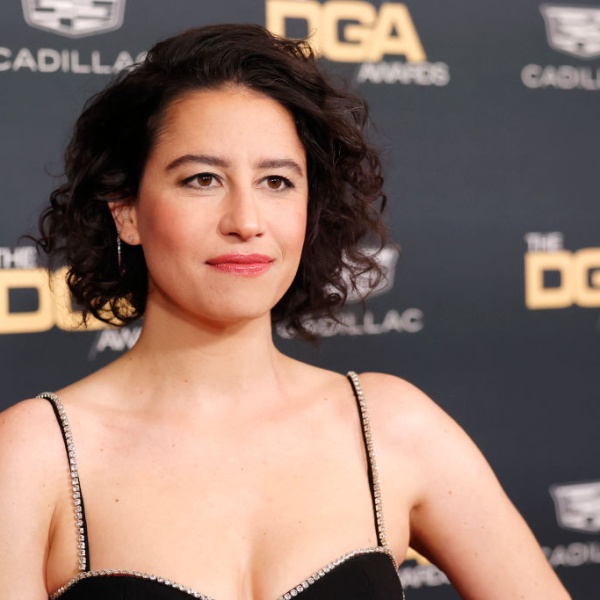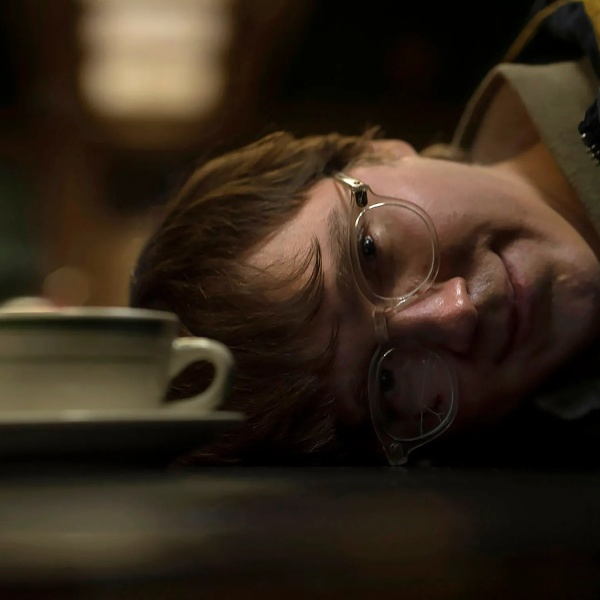Easy to overlook in the looming shadow of the Venice, Telluride, Toronto, and New York Film Festivals (and all of the awards season hoopla they portend), Switzerland’s historic Locarno Film Festival has remained so distinct and essential precisely because of its refusal to concede to industry pressures or chase attention over artistry.
While the magical Piazza Grande has been home to its fair share of glitzy outdoor screenings over the years — last year saw the 8,000-seat town square transform into an impromptu “Bullet Train” station, for example, while this year’s fest will host open-air screenings of everything from “Theater Camp” to Federico Fellini’s “City of Women” — Locarno has always prided itself on providing a more curious and less hostile platform for elite auteurs whose work may not conform to the commercial demands of the international marketplace; recent winners of the festival’s prestigious Golden Leopard award include Hong Sang-soo (“Right Now, Wrong Then”), Lav Diaz (who returns to the lineup with a new 215-minute quickie called “Essential Truths of the Lake”), and the great Chinese documentarian Wang Bing (“Mrs. Fang”).
At the same time, Locarno has also become a reliably well-curated showcase for rich and idiosyncratic work from emerging filmmakers whose ethos may not adhere to the more rigid sensibilities of other major festivals. Last year’s edition reinforced that reputation with aplomb, as Locarno helped launch the likes of Helena Wittmann’s “Human Flowers of Flesh,” Alessandro Comodin’s “Gigi la Legge,” and Thomas Hardiman’s “Medusa Deluxe” (which A24 is finally releasing in the U.S. this month), along with several other titles that went on to travel the circuit and remind festival audiences that Cannes and company are just the tip of the iceberg.
Now celebrating its 76th year on the northern shore of Lago Maggiore, the festival has continued to play to its strengths under the leadership of artistic director Giona A. Nazzaro (who assumed the reins during the early days of the pandemic), and that trend seems poised to continue this summer. Highlights of the festival’s 2023 slate range from new films by “Bad Luck Banging or Loony Porn” provocateur Radu Jude and prolific French absurdist Quentin Dupieux, to a windswept American horror movie set in the badlands of California (“Falling Stars”), a David Krumholtz/Bob Byington collaboration (“Lousy Carter”), and Eduardo Williams’ much-anticipated sequel to his much-anticipated sequel to Eduardo Williams’ 2016 Locarno breakout, “The Human Surge.”
Here are 5 must-see movies at the 2023 Locarno Film Festival, which runs from Wednesday, August 2, to Saturday, August 12.
-
“The Beautiful Summer” (dir. Laura Luchetti)

Image Credit: True Colours Locarno may have a reputation for programming formally adventurous fare, but that doesn’t mean the festival is immune to the sort of lush and florid coming-of-age drama that arthouse crowds used to eat up with a spoon; least of all one that stars Monica Bellucci and Vincent Cassel’s daughter as a portrait model so distractingly beautiful that none of the other people in Turin seem to realize they’re living on the brink of World War II. That goes for all of the city’s most handsome artists, and also — to an even greater extent — for its mousiest seamstress, whose whirlwind friendship with the local stunner sparks a magical season of self-becoming.
Based on Cesare Pavese’s beloved 1949 novel of the same name, and shot with all the lushness one might expect of a classic literary adaptation, Laura Luchetti’s rich and romantic “The Beautiful Summer” is an unapologetically old-fashioned movie shot with enough aplomb to slake your thirst for anything too modern.
-
“Bitten” (dir. Romain de Saint-Blanquat)

Image Credit: Films Boutique Locarno doesn’t have a midnight section, but if the festival made a consistent effort to premiere films like Romain de Saint-Blanquat’s “Bitten” it could likely go toe-to-toe with the TIFFs and Fantastic Fests of the world. The giallo-inflected premise alone is the stuff of genre legend: A 17-year-old virgin at a Catholic boarding school in 1967 awakes from a fiery dream convinced that she’s going to die before sunrise the next day, only to spend her last night on Earth at a fogbound Mardis Gras party with a sharp-fanged boy who might be immortal.
Fleshed in velvet, stained with heresy, and pierced with a harpsichord score and a soundtrack full of period-appropriate jams from bands like The Seeds and the Chymes, “Bitten” might be a touch light on story but it’s intoxicatingly rich on vibes; imagine a Peter Strickland film about the kind of teenage nights that feel like they might last forever and you’ll have an idea of why this debut is such a delightful rush of blood to the head.
-
“Do Not Expect Too Much from the End of the World” (dir. Radu Jude)

Image Credit: 4 Proof Film Hot on the heels of 2021’s “Bad Luck Banging or Loony Porn,” Radu Jude — the bad boy of Romanian cinema, a title for which there is no small amount of competition — returns with an even funnier and more fearlessly confrontational satire about personal identity in the age of real-time digital capitalism. The beautifully titled “Do Not Expect Too Much from the End of the World” begins as a black-and-white profile about history’s most foul-mouthed casting agent as she drives around Bucharest auditioning severely disabled people to play victims in a corporate film about workplace safety (and this is also something of a film about workplace safety). In between stops, she uses a filter on her phone to record social media videos in character as a hyper-chauvinistic bald man who wants everyone to fuck him and/or die of rectal cancer.
Just when the film seems to be settling into the sweet spot between Abbas Kiarostami and Uwe Boll, the “Bloodrayne” director himself shows up, along with Nina Hoss (as Goethe’s grand-grand-granddaughter), an interstitial subplot styled to resemble a Romanian melodrama from 1981, references to everything from “Pimp My Ride” to Godard’s recent suicide, and the finest Zoom gags the cinema has yet to muster. And all of that comes well before this 163-minute tour de force splits in two with a twist that adds another layer of performance to a film in which everyone is siloed into their own realities, severing the fabric of a shared universe that’s incapable of being resewn together, let alone saved.
-
“Falling Stars” (dirs. Richard Karpala & Gabriel Bienczyck)

Image Credit: Latarka Studios Described by Locarno’s artistic director Giona A. Nazzaro as “Monte Hellman doing ‘The Blair Witch Project,’” Richard Karpala and Gabriel Bienczycki’s “Falling Stars” promises to be the kind of American folk-horror that gets under your skin without shedding a drop of blood. The story follows three brothers who head deep into the California badlands to watch (or help?) their friend bury a dead witch.
But as everyone knows, the most important rule of burying a dead witch is to never, under any circumstances, desecrate the body. These poor young saps learn that lesson the hard way, setting up an urgent race against the sun to save their entire family from a curse that threatens to follow them home and plague generations to come. With its sensibilities tending to skew away from convention, a festival like Locarno is a perfect breeding ground for new and unexpected strains of American horror cinema, and the confidence with which “Falling Stars” is already being discussed as the — or at least a — next big thing makes it a major point of interest for anyone going to Switzerland this month.
-
“Family Portrait” (dir. Lucy Kerr)

Image Credit: Lights On Film Still waters run deep in this feature debut from Texas-born filmmaker and installation artist Lucy Kerr, the deceptively placid sketch of a pandemic-era family who get together on a windless summer day in the hopes of snapping an idyllic group photo for their (2021?) Christmas card. The particulars of the disquiet are vague by design, as the plotless “Family Portrait” eschews a clear narrative in an effort to crystallize the disquiet that a more linear story might try to explain away, but no movie that opens with an Edgar Allen Poe quote and several minutes of ominous whooshing sounds is trying to be that coy about its intentions.
Errant chatter about the Vietnam War and a recently deceased step-cousin seep into Kerr’s deathly motionless shots until her heroine (“Anne at 13,000 Ft.” star Deragh Campbell) begins to fear that her mom has gone missing, a suspicion that steers this 75-minute sketch into the Bermuda Triangle somewhere between “Hereditary” and “L’Avventura.” The pursuit of the perfect image gradually reveals a negative image of unspoken pain, just as the images that Kerr finds along the way gradually reveal a bold new filmmaker whose vision penetrates well below the surface of American self-identity.





